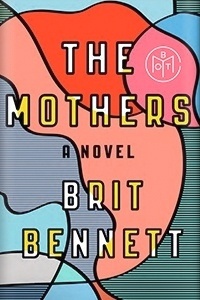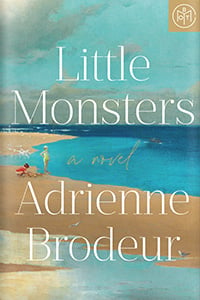

Historical fiction
The Vanishing Half
2020 BOTY WINNER
Repeat author
by Brit Bennett
Quick take
Identical twins’ lives diverge in this reflection on family, Black identity, and how our past shapes our present.
Good to know
Emotional
Family drama
LGBTQ+ themes
Literary
Synopsis
The Vignes twin sisters will always be identical. But after growing up together in a small, southern Black community and running away at age sixteen, it's not just the shape of their daily lives that is different as adults, it's everything: their families, their communities, their racial identities. Ten years later, one sister lives with her Black daughter in the same southern town she once tried to escape. The other secretly passes for white, and her white husband knows nothing of her past. Still, even separated by so many miles and just as many lies, the fates of the twins remain intertwined. What will happen to the next generation, when their own daughters' storylines intersect?
Weaving together multiple strands and generations of this family, from the Deep South to California, from the 1950s to the 1990s, Brit Bennett produces a story that is at once a riveting, emotional family story and a brilliant exploration of the American history of passing. Looking well beyond issues of race, The Vanishing Half considers the lasting influence of the past as it shapes a person's decisions, desires, and expectations, and explores some of the multiple reasons and realms in which people sometimes feel pulled to live as something other than their origins.
Read a sample
Get an early look from the first pages of The Vanishing Half.
Why I love it
Taylor Crumpton
@taylorcrumpton
As a descendant of enslaved Black Americans, I am well aware of the ways that cultural trauma is passed from mothers to daughters over the years. Sometimes I ask myself the question, are there aspects of my ancestors’ experiences that I would remove for future generations, if I could? In her new book, The Vanishing Half, Brit Bennett articulates this question through the lives of two light-skinned Black twins whose decisions around choosing to pass—or not—shape their lives, their daughters lives, and the lives of generations to come.
Desiree and Stella Vignes were once inseparable, fleeing their small southern town to build a life together in New Orleans. But when Stella makes the decision to pass as white—disappearing from her sister’s life in order to pursue the “American Dream” of whiteness—the twins’ paths diverge, determining not just their own futures, but the futures of their daughters and their relationship to Black womanhood. As the sisters mature into mothers and their daughters into adulthood, each woman must confront her own relationship to her past, to family duty, and to her own autonomy.
Bennett’s writing filled an existing void within me: for mothers and grandmothers to be granted the humanity they rightfully deserve, but were denied. The Vanishing Half is a refreshing contemporary adaptation of the American familial narrative, and it is a book I will cherish. To Brit Bennett, thank you for giving me a book that I can read to my daughter and granddaughter in the decades to come.































































































